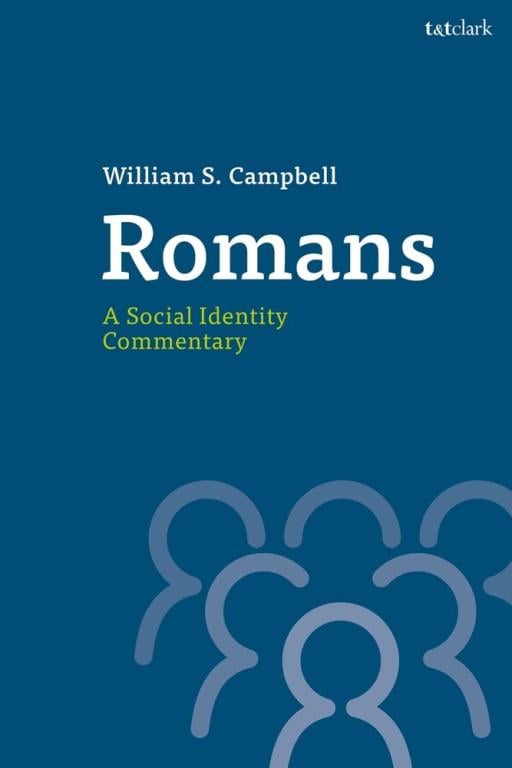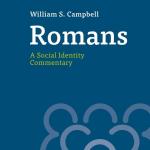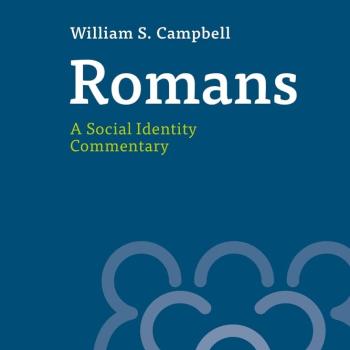While Bill Campbell and I quite agree that the focus of Paul’s ministry is Gentiles, and that Galatians talks about the basic division of labor between Peter and Paul, with the former focusing on Jews, the circumcised, and the latter focusing on Gentiles, this in itself was not some sort of strict limitation. Peter came to Corinth after Paul had already planted a church there (see 1 Cor. 1-3) and Paul went to places which were within the purview of Peter— namely synagogues all over the empire. And the reason there was this overlap is stated precisely in Romans 1— the Gospel is for the Jew first, and also for the Greek and the ‘barbarian’. Rom. 1.14-16 could hardly be more clear. It’s not just for Gentiles. And because this was so, and since it was for the Jew ‘first’ Paul is accurately portrayed as going to Jewish meeting places first throughout his missionary work beginning in Acts 13. As we have already noted, Paul’s message was often rejected in those places, because as Alan Segal pointed out Paul was viewed as an apostate, beyond the pale, and so received the 39 lashes five times.
Is Paul addressing only Gentiles in the whole of Romans and does Rom. 1 already indicate this? No. It indicates that Paul is called to share the Gospel of God and bring about the obedience of faith among all the nations. The word ethnos is not a technical term for Gentile, though Jews did sometimes use it to mean the non-Jewish ethnoi. My point is that Paul’s audience, especially if they are mostly non-Jews would not have heard the term to mean Gentiles only. It simply meant nations or ethnic groups to them. Secondly, as Jason Myers has shown in his doctoral dissertation, the phrase Campbell translates as ‘hearing with trust’, actually means the obedience of faith— a phrase used in Roman contexts to talk about the pacification of the nations, their obedience, only now Paul uses it to speak about obedience that involves Christian faith, and submitting to the Gospel. This obedience is ‘among all the nations’ which BTW would include the Roman province of Judaea, not just the Gentile nations. And those addressees here are ALL those in Rome, beloved of God, which includes both Jews, such as those mentioned in Rom. 16, and of course Gentiles, who are the majority of the audience of this discourse. They are all ‘called saints’.
Sadly, it becomes increasingly apparent how beholden Campbell is to Fredriksen’s reading of Paul. She argues that contra the majority of exegetes Rom. 1 says that Jesus becomes Son of God with power not by his resurrection of the dead, but at the general resurrection of the dead. She bases this on an assumed contrast between what he was in the flesh, Son of David, and how the Spirit expresses appointment as the eschatological messiah at the general resurrection. This simply does not work. According to Paul in 1 Cor. 15 Christ’s own resurrection already in 30 A.D. is the beginning of the general resurrection which is to be followed by the resurrection of those who are in Christ, not a general resurrection. Some of this confusion is based on the mistaken notion that the psuchikon soma, pneumatikon soma contrasts a physical event with a ‘spiritual’ and thus non-physical event. But that contrast is between the first Adam and the last one, and what the latter phrase means is a physical body totally empowered by the Spirit, not a ‘spiritual body’. Jesus was not merely seen by the original disciples on Easter (as in some kind of vision), he appeared to them, initiative by Christ himself. The reason for the phrase ‘resurrection of the dead’ is because Christ’s resurrection is the inauguration of the general physical resurrection. And besides, Paul clearly believes Christ is already in power which is why he gets called Lord again and again in Paul’s letters. Rom. 1.3-4 needs to be read in light of what 1 Cor. 15 actually says.













